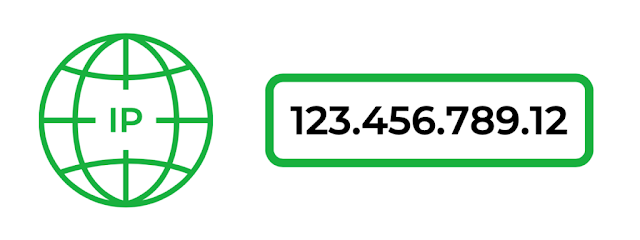What Is Web Hosting? 6 Popular Types of Web Hosting Services
Are you
feeling a little confused by the different types of website services and web
hosting plans?
If so, don't
feel bad, you're not alone. With hundreds and hundreds of web companies
competing for your business with thousands of different web hosting plans,
things can get pretty confusing pretty quickly.
Add to that
all of the "technical geek" terms like bandwidth, GB, and DNS and
it's easy to see how someone who just wants to start an online business and
make money online can get easily discouraged.
As your
online business grows, your Web hosting needs will increase and become more
complex. Free and inexpensive web hosting plans may have been fine in the
startup phase of your online business, but if your website is starting to feel
sluggish as it continues to grow and you get more website traffic, you may need
to start looking at beefing up your Web server.
Think of this
list as the progression of the type of hosting plans and services a growing
online business can consider.
With that
said, let's talk a look at the most common types of web hosting plans and determine which one would
best serve the needs of your business; whether you are just starting an online
business or looking to take your online venture to the next level.
1. Shared Web Hosting
Shared
hosting means just that. Your website is hosted on a server shared by other
websites. The advantage of this setup is the shared cost. You can pay as little
as $5-$10 per month for sharing a super server with (probably) hundreds (or
thousands) of other websites.
The biggest
disadvantage of a shared hosting account is that you're at the mercy of the
other sites on your server. A really popular site may adversely affect the
performance of your own site. On the other hand, if you're the most popular
site on the server, you get to use a super server for a very low price.
When most
people start an online business they usually start out with a shared hosting
plan to minimize costs; and they're not likely getting a ton of traffic
initially.
2. Reseller Web Hosting
Reseller
hosting packages are basically a shared hosting account with extra tools to
help you resell hosting space.
Reseller
packages come with greater technical control (often via the Web Host Manager
(WHM) control panel), billing software to help you invoice clients and other
extra perks.
If you're
planning on selling web hosting as a business then reseller web hosting is
perfect for you. Otherwise just stick with a shared hosting plan if you're just
starting out.
Also, if
you're interested in making money as a web hosting affiliate you'll want to
check out this article on how to make money with affiliate marketing.
3. Cloud Based Web Hosting
Cloud Based
Web Hosting refers to a fairly new hosting technology that lets hundreds of
individual servers work together so that it looks like one giant server. The
idea is that as the need grows, the hosting company can just add more commodity
hardware to make an ever larger grid or cloud.
The advantage
of cloud-based web hosting is that if you get an unusually large amount of
website traffic the web hosting plan can accommodate the surge of traffic -
rather than shutting your website down.
If you're
website is growing and you're driving more traffic to your website, this is
probably the first point you would upgrade too from a shared hosting plan.
4. Virtual Private Server (VPS)
Virtual
private servers share one physical server but acts like multiple, separate
servers. A VPS is a stepping stone between shared hosting and getting your own
dedicated machine. Even though each VPS instance shares hardware resources,
they are allocated a dedicated slice of the computing resources.
A VPS avoids the problem of having your
hosting neighbors bring down your website, while avoiding the cost of a
dedicated server.
5. Dedicated Web Server
When you have
a dedicated server, it means you are renting one physical server from a hosting
company. You can have full control (called "root" permissions in
Linux) if you want it.
With a
dedicated server, you don't have to worry about other websites on a shared
server taking up your resources and slowing your website down.
A dedicated
server is generally the highest level of server you would need if your online
business grows into a presence that is getting a lot of website traffic. While
the costs of a dedicated server are significantly higher than shared hosting,
your business will be at a point that can easily afford the necessary costs of
having your own server.
Pricing:
Dedicated servers are priced from $100 and up. But if you are considering a
dedicated server, you should also consider the costs of hiring a system
administrator to take care of the technical details.
6. Cloud hosting
Cloud hosting
is the current buzzword of the hosting industry. It’s just a marketing term and
“Cloud” can mean different things in different contexts. With hosting, it means
many computers working together, running applications using combined computing
resources. It’s a hosting solution that works via a network, like the internet,
and enables companies to consume the computing resource like a utility e.g. gas
or electricity.
Using as much
as they need without having to build and maintain their own computing
infrastructure in-house. The resources required for maintaining your website
are spread across more than one web server, reducing the chance of any downtime
due to server malfunction.
Cloud-based
hosting is scalable, meaning your site can grow over time, using as much
resource as it requires and you only pay for what you need.



Comments
Post a Comment